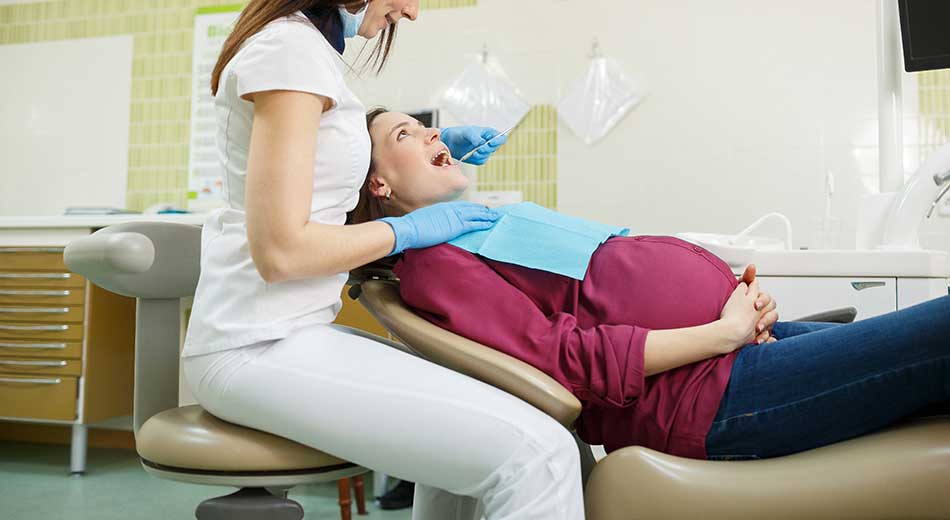Don’t forget to add a dentist visit to your newborn’s birth-plan before he or she arrives. Getting an appointment during pregnancy is safe and essential for your dental health. Your dentist can also help you manage cleanings and treatments like fillings while you’re pregnant, as well as any pregnancy-related oral difficulties you may be experiencing.
The American Dental Association, the American Congress of Obstetricians and Gynecologists, and the American Academy of Pediatrics all urge expectant mothers to visit the dentist. It is an important period in a woman’s life, and good oral health is linked to general well-being.
Here are some of the pregnant women’s most frequent concerns about visiting the dentist.
When to Tell Your Dentist You Are Pregnant
If you think you’re pregnant, notify your dentist’s staff. When making an appointment, inform them whether or not you’re in your first trimester. Also, let your dentist know if you’re on any medications or if your doctor has given you any special instructions regarding pregnancy. If the pregnancy is high-risk or if you have specific health issues, you may want to postpone any elective dental procedures until after your pregnancy.
Local Anesthetics During Pregnancy
If you’re pregnant and require a filling, root canal, or tooth extraction, you don’t have to worry about whether the numbing medicines your dentist will employ during the procedure are safe. They are both healthy for you and your baby.
In a recent research, women were given lidocaine injections and a similar number of women in the control group did not. These treatments were safe during pregnancy since there was no evidence that they altered miscarriage rates, birth malformations, prematurely born babies, or infant weight. Dental treatment with anesthesia was found to have no impact on pregnancy health in one study, which sought to determine whether there was a substantial risk linking dental treatment with anesthetic use and pregnancy outcomes and didn’t find any.
Dental X-rays During Pregnancy
Yes, getting an X-ray during pregnancy is completely safe. Although dental X-rays emit minimal radiation, your dentist or hygienist will wrap you in a leaded apron to reduce the amount of radiation that enters your abdomen. To safeguard your thyroid from radiation exposure, your dental practice will also cover your throat with a leaded collar.
Dental Care While Pregnant
Don’t put off your dental checkup because you’re expecting a child. Now more than ever, routine visits are crucial since pregnancy causes hormonal changes that raise the risk of periodontal disease and severe gum discomfort, both of which can be exacerbated by pregnancy gingivitis. Gingivitis will afflict 40% of all pregnant women during their term. If you already have significant gum disease, pregnancy may make it worse.
Pay close attention to any changes in your gums during pregnancy. If you experience discomfort, bleeding, or gum edema at any time during your pregnancy, go see a dentist or periodontist as soon as possible.
Flossing, twice-daily brushing, and using an antimicrobial mouth rinse are all recommended to maintain good oral hygiene to prevent and cure dental health issues such as tooth decay. If you’re expecting a baby, don’t skip regular dental cleaning because it’s inconvenient.
Now more than ever, expert dental cleanings are crucial. Gum disease that doesn’t respond to treatment may need intervention by a dentist. Antibiotics and tissue excision might be used for treatments.

